Rebecca Ackroyd explores anxieties over fertility, the body and the climate crisis
'Period Drama' by Rebecca Ackroyd dives into the world of personal anxieties through casts of her body, and a selection of portraits focusing on the eyes of those who influence
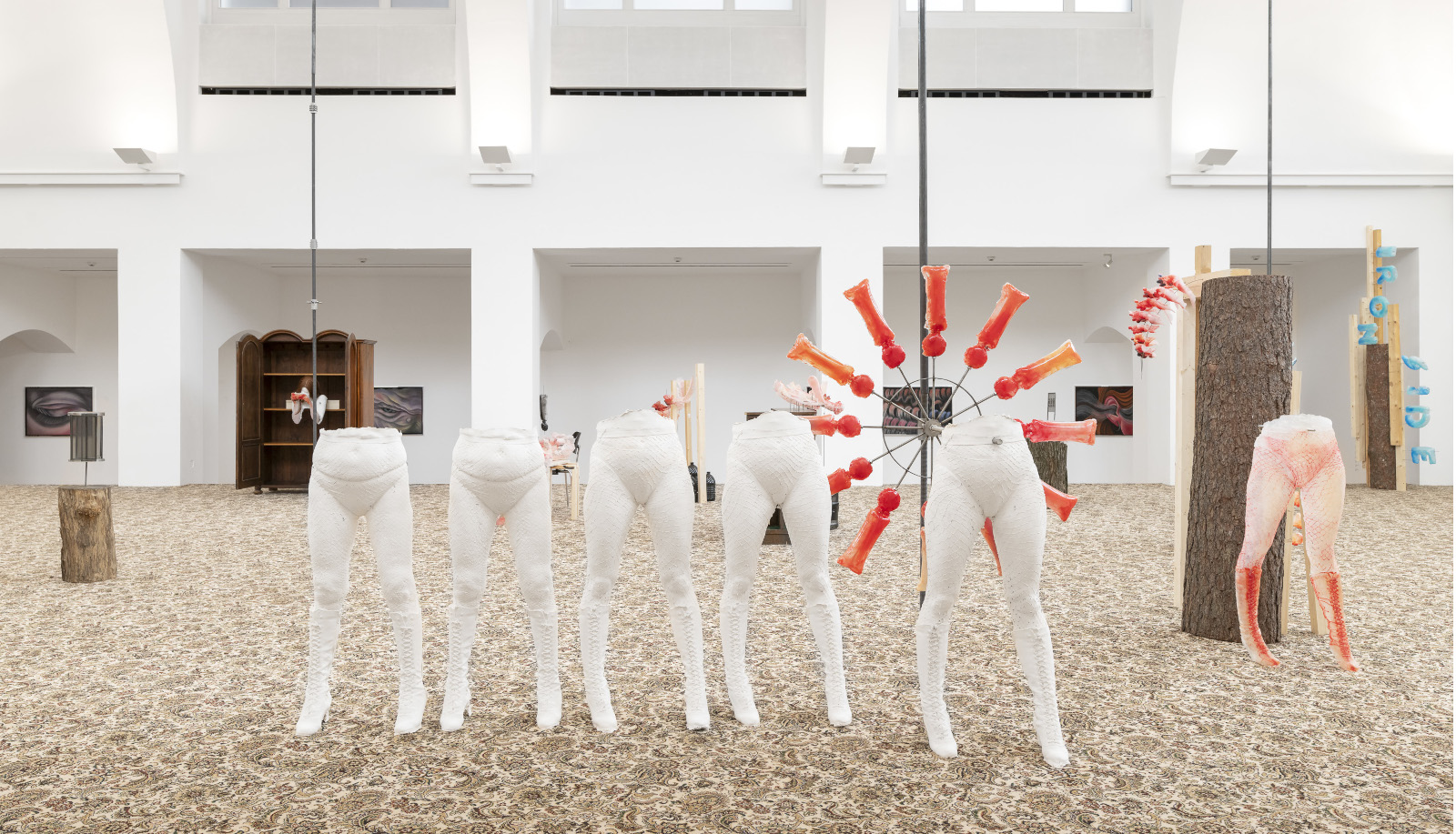
Rebecca Ackroyd’s first institutional show in Germany opened earlier this month at the Kestner Gesellschaft in Hannover. The unique building poses a challenge to the artists who show there and over two floors Ackroyd brings together all the elements of her practice in painting, drawing, sculpture, installation and film.
The RA trained artist lives between Berlin and London. Represented by Peres Projects she has exhibited internationally, including the prestigious Biennale de Lyon.
Period Drama unites anxieties over fertility, the body and the climate crisis through Ackroyd’s introspective and exploratory practice. Using symbols from psychoanalysis, popular culture and those that emerged in her own work over time she tells a story of a contemporary state of mind in our dystopian world. We see her recurring theme of casts of her lower body, a selection of portraits focusing on the eyes of those who influence and a number of new works and found objects brought together as she pushes her practice into a new stage in her largest show to date.
From turbines, to Titanic, to the arachnid myth she weaves her personal influences into a broader fabric of the psychology of living in troubled times.
'Rebecca Ackroyd: Period Drama'
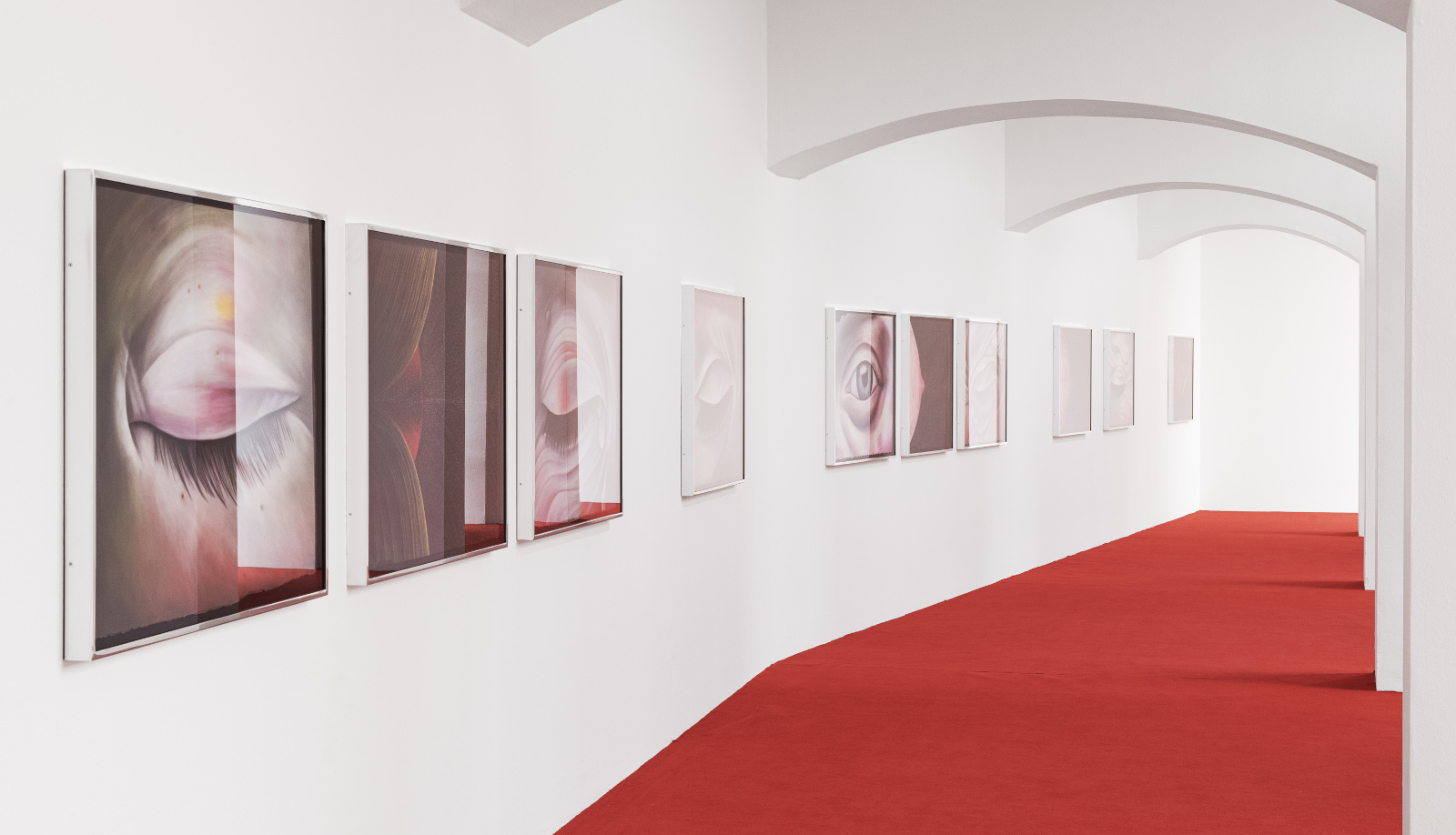
W*: You address ideas of fertility, femininity and thinking about yourself beyond a potential motherhood in the show.
RA: It's something I just haven't been thinking about very much and then you realise that you have been thinking about it because you can't not think about these things. I feel like people are redefining what that is and that there is a lot more reclamation of what it means to be a parent or not a parent. The ‘engine’ works are all titled after the Empress tarot card as I wanted them to relate to an idea of physical desire and urgency - thinking in an almost literal way about a body clock as a time keeper.
While I think about my work in relation to me, obviously, because I'm very much in it and it comes from me, I also think about in terms of a much broader context. The themes in the work can also be very cold, mechanical and very abstract. The ‘Engines’ series have this quite violent presence for me, I think it's really important to have a duality between the body and abstraction as well as desire and violence.
Receive our daily digest of inspiration, escapism and design stories from around the world direct to your inbox.
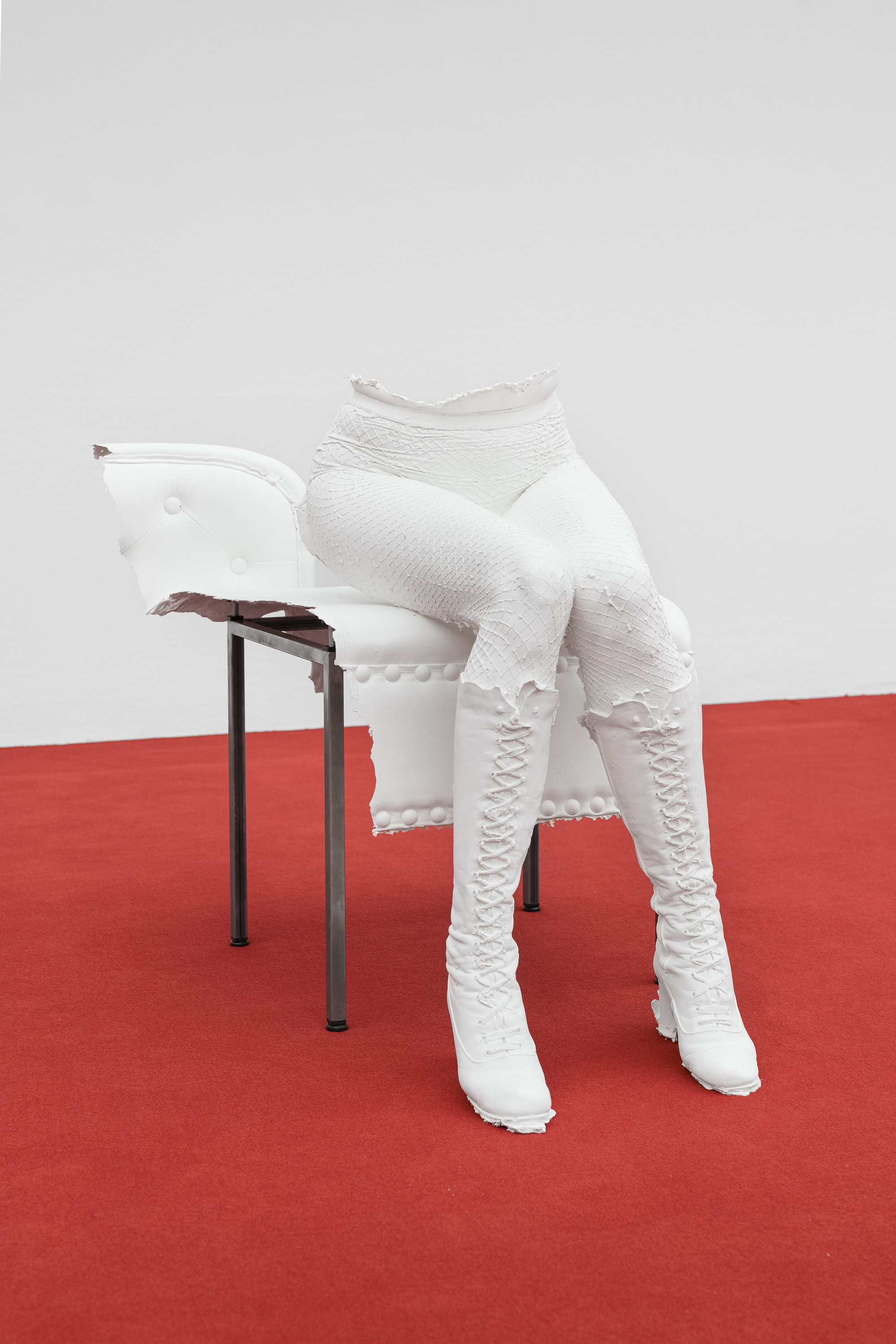
W*: I love the psychoanalytical symbols in your work, the arachnid references for example. What draws you to psychoanalysis and the symbols within it?
RA: My mum studied psychotherapy when I was growing up and then I had it for five or six years and I think just like the whole experience- not when I was going through it but afterwards- in a lot of ways like enabled me to be an artist because it really taught me how to live in the present, so I can make work and be with it. Whereas I think it was always like a battle between myself and chaos for a long time before that.
I think that just the idea, the process of it, I find really fascinating and I'm relate that to storytelling and memory by trying to make sense of the present through remembering the past but also how all of those stories we tell ourselves from the past aren't necessarily true.
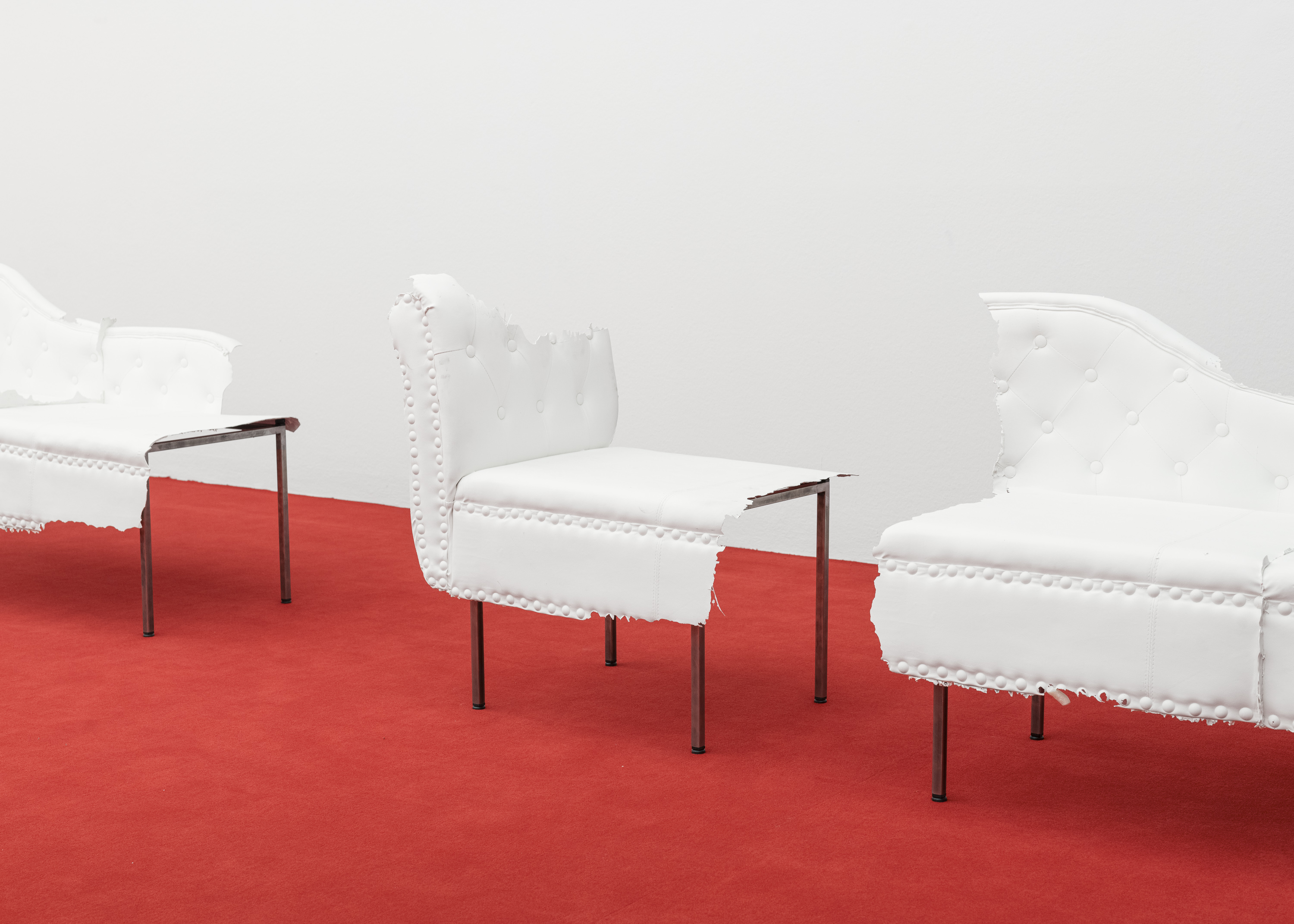
W*: I feel like your work comes from this place that sits between the subconscious and the doing, do you think that’s true?
RA: I'm really interested in that as a way of making art or like trying to articulate something that doesn't exist into being. That's why artists like Hilma Af Klint or spiritualist artists like Georgiana Houghton inspire me so much because it's like this attempt to nail down a greater being into a physical form.
I feel like there's like something in that kind of ambition I really admire and like the idea of trying to put a body to something it's really, that's what kind of like really gets me wanting to make more work really like. With the drawings in the show between the eyes they are almost diagrams or something and they're quite abstract, but they're also quite bodily, and they look like an eye or a boob. I wanted to reflect the idea of looking inwards and outwards at the same time.
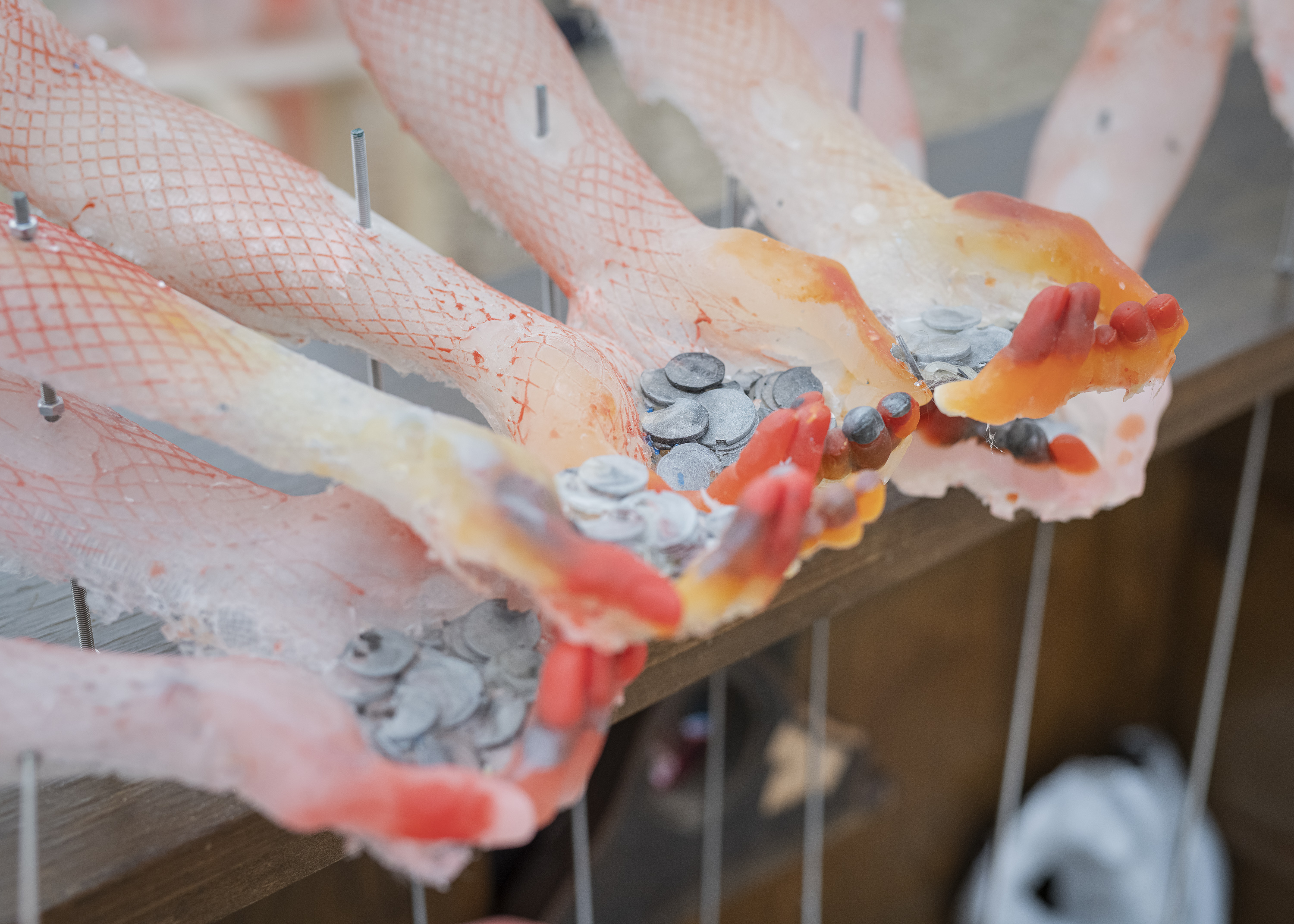
W*: Tell me about your series of portraits of people’s eyes?
RA: For this show they are based on specific people, so there's one upstairs of Louise Bourgeois, and a series of makers that have informed my practice, writers, singers, actors, anyone. Then there two of my dad's eyes in the show so it includes my family and then I ended up making drawings of the four people who work with me in the studio and helped me make the show. I wanted to include them in the narrative as, they are a of part of the making.
I didn't end up showing a lot of the eyes that we made but they are part of an ongoing series, a loop of constant markers of different people and they can be from anywhere, anytime, or any moment. I just did Pamela Anderson's.
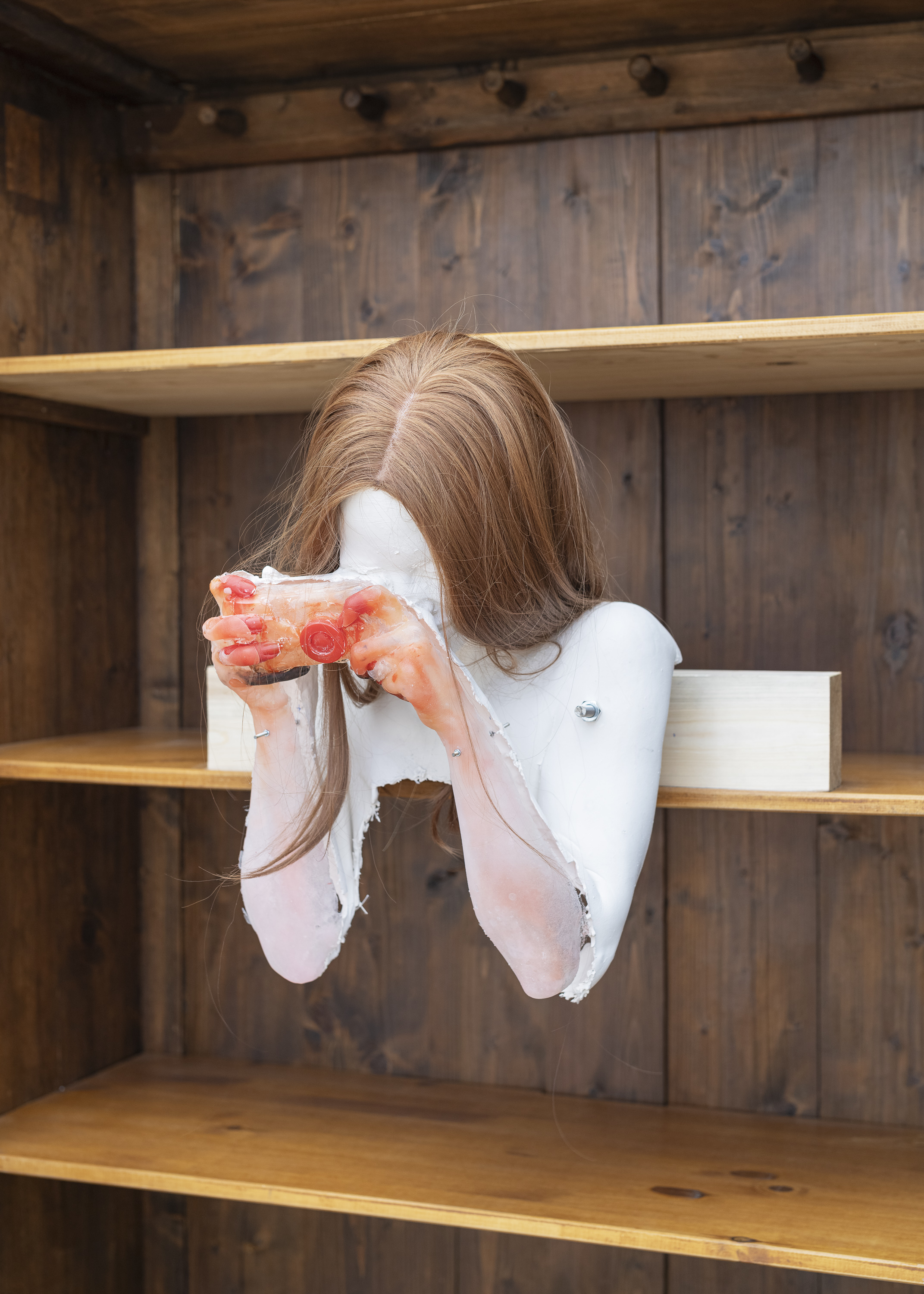
W*: To conclude, there is such depth here and it makes me want to ask, is there something that you'll like, dip into and come back to all the time or like, like music or a book or a particular artist when you are making a body of work?
RA:I was reading a lot of Annie Ernaux. I love the way that she captures life in such a broad way like in life to diaries and how you see a whole period of time just evolving and changing through this one perspective in a way that's very unpretentious.
I also saw the Eva Genzken show at the Neue Nationalgalerie in Berlin. She's a huge influence to younger artists now, her recent works embody a real teenage energy and I feel that's so important- to maintain a connection to a sense of vitality.
Period Drama runs at Kestner Gesellschaft, Hannover until 18 February
kestnergesellschaft.de
Amah-Rose Abrams is a British writer, editor and broadcaster covering arts and culture based in London. In her decade plus career she has covered and broken arts stories all over the world and has interviewed artists including Marina Abramovic, Nan Goldin, Ai Weiwei, Lubaina Himid and Herzog & de Meuron. She has also worked in content strategy and production.